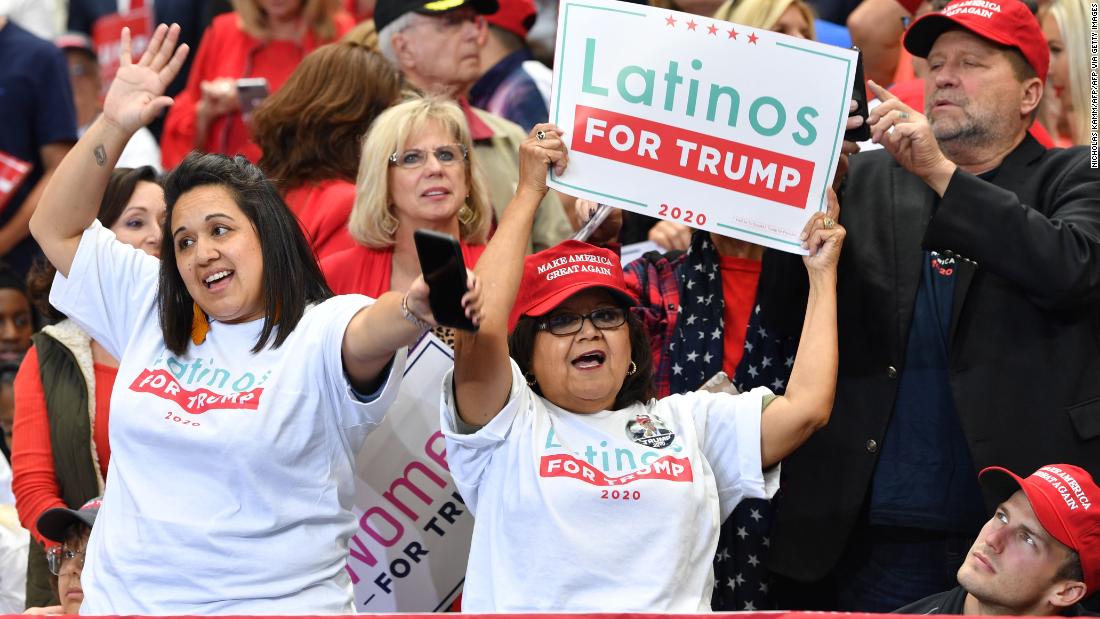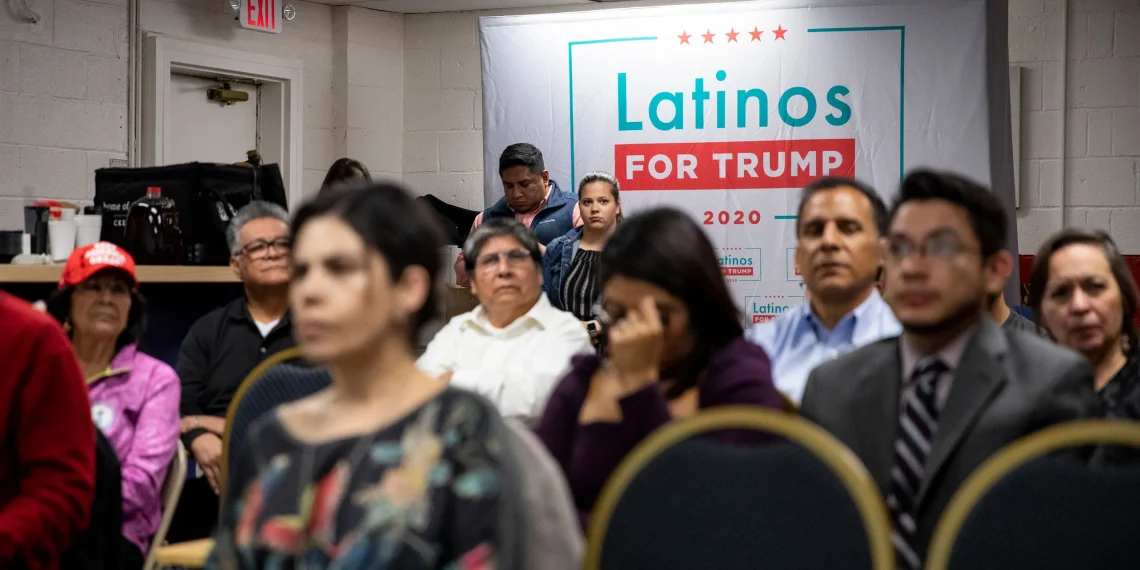Former President Donald Trump’s popularity among Latino voters is reshaping electoral dynamics, challenging Democratic dominance and creating a battleground across the United States.
Polls reveal Trump’s increased favor among Latinos since 2020, reaching over 40% in some surveys, a historic high for Republicans. This shift prompts Democrats to defend their traditional Latino support base vigorously.
The significance of Latino voters in the 2024 elections is pivotal. With an estimated 15% of eligible voters nationwide and up to 33% in key states like California, their sway extends to critical races, including those for Congress and the Senate.

Both parties recognize that victory hinges on diverse coalitions, necessitating strategic outreach to Black, Asian, and Hispanic voters.
Trump’s appeal to Latino voters stems from diverse factors, including law enforcement support near the Mexican border, anti-socialist sentiments among Cuban Americans, and evangelical Christian alignment with Christian nationalism. Education also plays a role, with Trump gaining ground among non-college-educated Latinos.
The political implications are profound. Both parties navigate a changing landscape, with Republicans potentially peeling off some Black and Latino working-class voters from the Democratic coalition.
Meanwhile, Democrats court college-educated white voters who traditionally lean Republican. This realignment challenges conventional wisdom and strategic paradigms.

Despite Trump’s gains, uncertainties persist. Polling trends suggest Latino support remains fluid, with Democrats counting on a potential return to Biden amid concerns over Trump’s rhetoric and policies. Yet, the GOP’s sustained outreach and messaging resonate with many voters.
In this shifting landscape, the 2024 election holds critical importance. Republicans aim to capitalize on momentum, while Democrats seek to fortify their base. The outcome will shape future electoral strategies and define the evolving dynamics of American politics.




